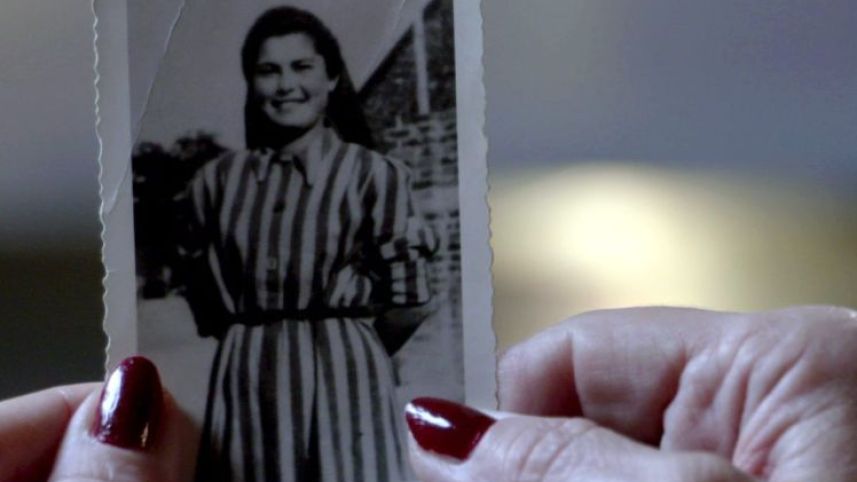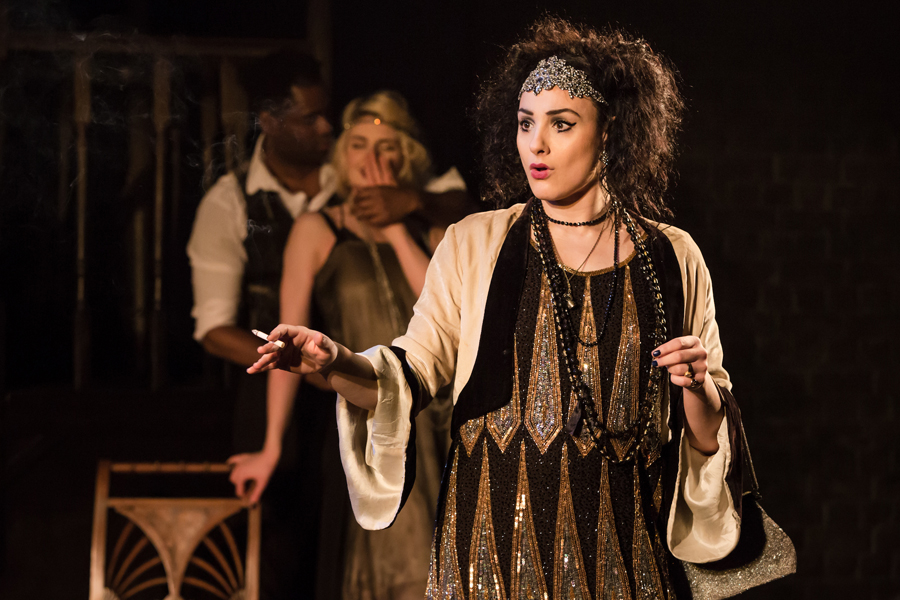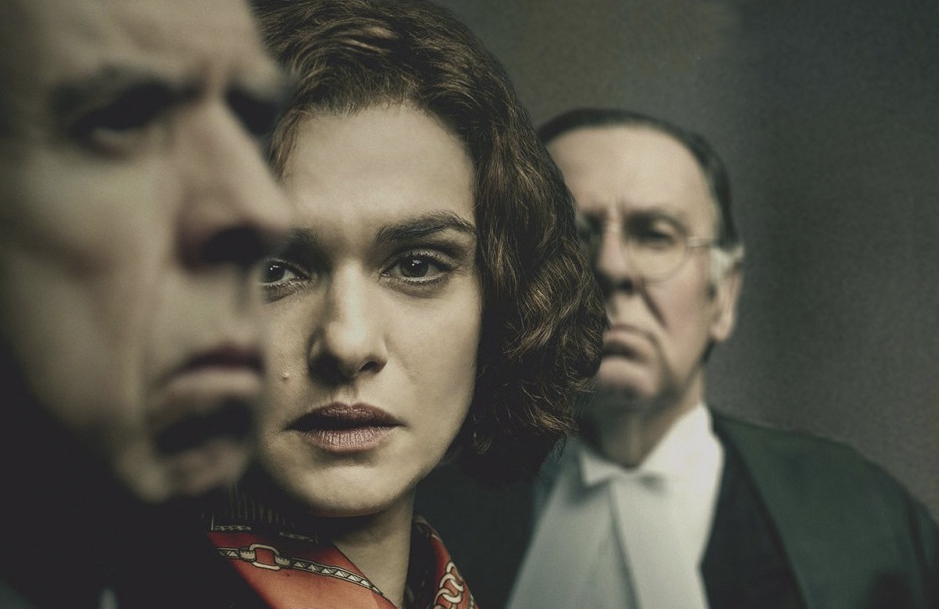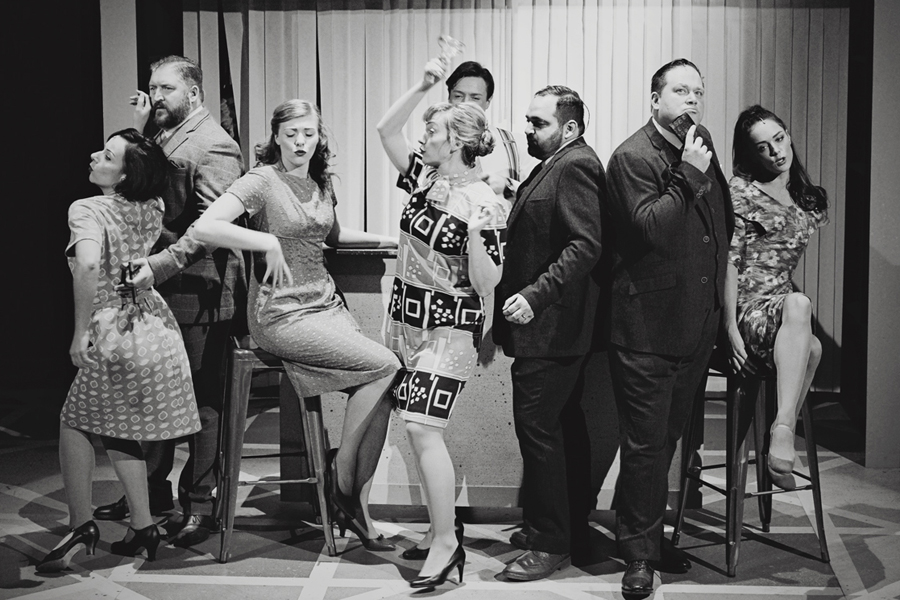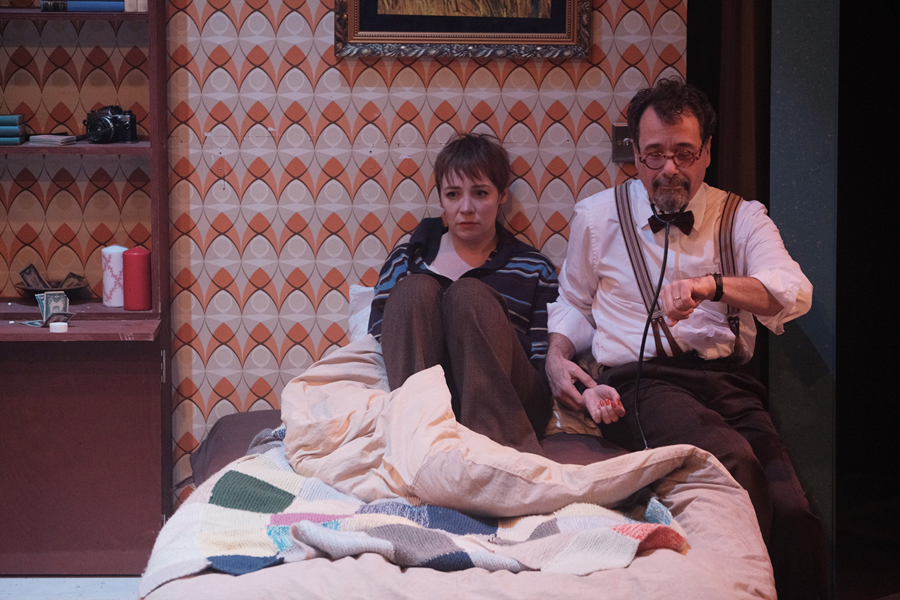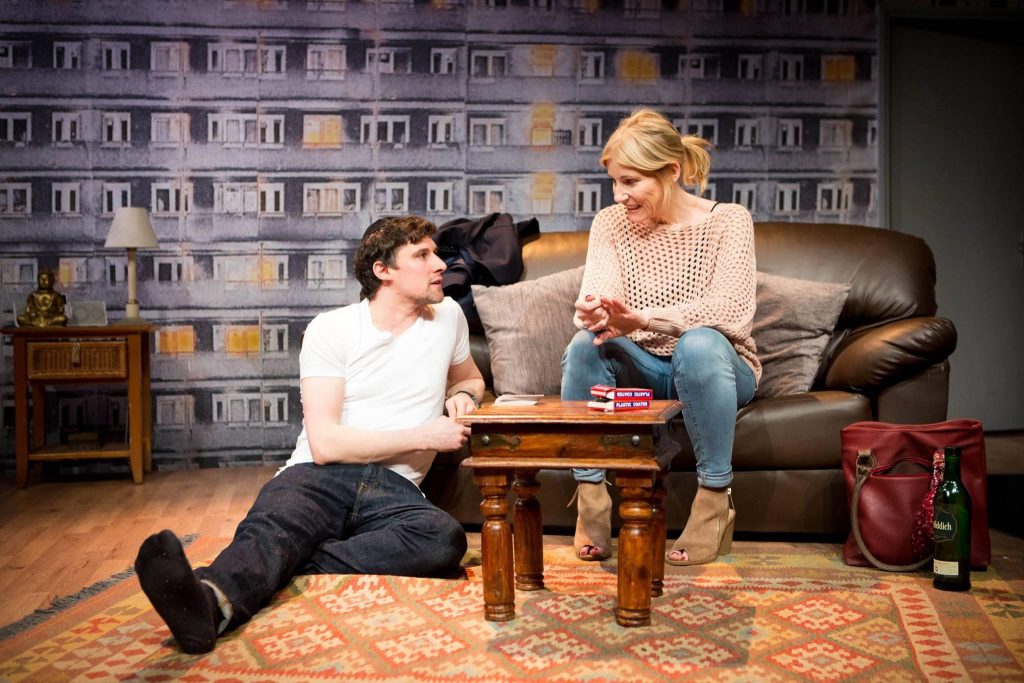 Some years back, I interviewed Rabbi Jonathan Black for radio, making a cameo appearance in EastEnders conducting a Jewish wedding. Not already a viewer, I duly researched by watching an omnibus edition and learned how you ‘gotta talk’. Jewish (non-Orthodox) playwright Stewart Permutt did his research by consulting a Charedi friend. So there’s a real authenticity about his protagonist Gideon – what brands of bread and crisps he can eat (Kingsmill and Walkers) and what he cannot drink from (glass).
Some years back, I interviewed Rabbi Jonathan Black for radio, making a cameo appearance in EastEnders conducting a Jewish wedding. Not already a viewer, I duly researched by watching an omnibus edition and learned how you ‘gotta talk’. Jewish (non-Orthodox) playwright Stewart Permutt did his research by consulting a Charedi friend. So there’s a real authenticity about his protagonist Gideon – what brands of bread and crisps he can eat (Kingsmill and Walkers) and what he cannot drink from (glass).
Permutt has form when writing strong female characters, often for well-known TV stars, including Lesley Joseph, Celia Imrie and the much-missed Miriam Karlin.
His latest play was specially commissioned by EastEnders and Coronation Street star Michelle Collins, who was born in Hackney. Collins' maternal grandfather was a Belgian Jew who moved to Wales to escape the Holocaust. Having played the confused mother Evelyn in Diane Samuels' Kindertransport, Collins sought another dramatic stage role and proactively commissioned a play with a juicy part for herself.
The resulting two-hander is a present-day drama set in the East End flat of Collins’ character Gina, a feisty, friendly ex-nurse living on a Dalston council estate, whose days are filled caring for her partner, who's been bed-bound after a stroke. When young Orthodox Jew Gideon (Joe Coen) is beaten up one Friday night on her doorstep, Gina takes him in. But Shabbat has begun and this strictly observant Jew can’t travel home to Stanmore, so is forced to spend the night with her, a night during which they find themselves drawn to each other as regrets about their lives emerge.
Tim Stark directs this dark comedy exploring the “madness of the human condition”, as he says, with a sensitive ear for dialogue so that the evolving emotional conflict is genuinely involving. Simon Shaw’s set beautifully evokes (now ex) council flats, with their signature external landings. However, it’s a challenge to sustain dramatic tension over a scenario that doesn’t evolve sufficiently during its playing time, so it might benefit from losing a few of its 105 minutes.
Collins and Coen admirably inhabit their characters despite gaps in their development over the drama’s duration. Collins convincingly captures the conflicted Gina, and her small-screen acting is well suited to the intimate Park90 space. Coen, fresh from The Mighty Walzer and Bad Jews, invests Gideon with that curious mix of self-righteousness and self-knowing often seen in the ultra-orthodox of any religion. Their final scenes together are touching, bringing out the common bonds shared by the characters and the chemistry between the actors.
A Dark Night in Dalston is a good night out, given enough good will and patience to discover Gina and Gideon’s deep-seated hopes and needs.
By Judi Herman
Photos by Helen Murray
A Dark Night in Dalston runs until Saturday 1 April. 7.45pm (Mon-Sat), 3.15pm (Thu & Sat only). £18, £16.50 concs. Park Theatre, N4 3JP. 020 7870 6876. www.parktheatre.co.uk



